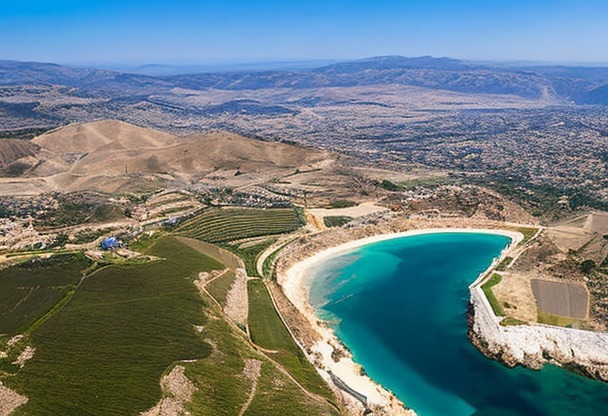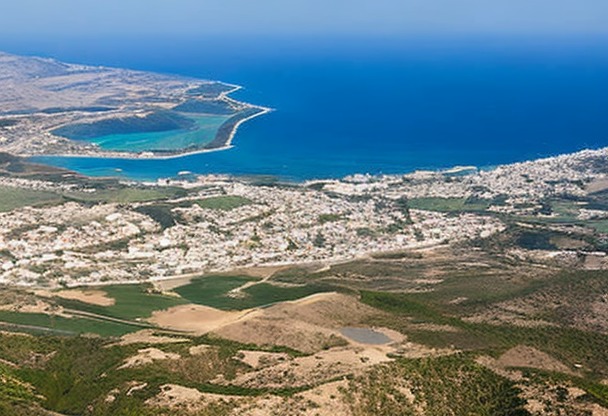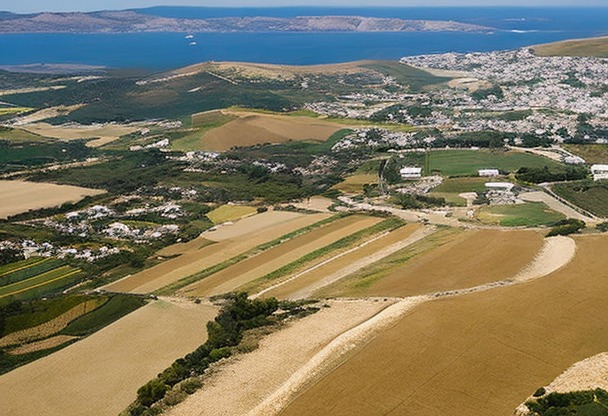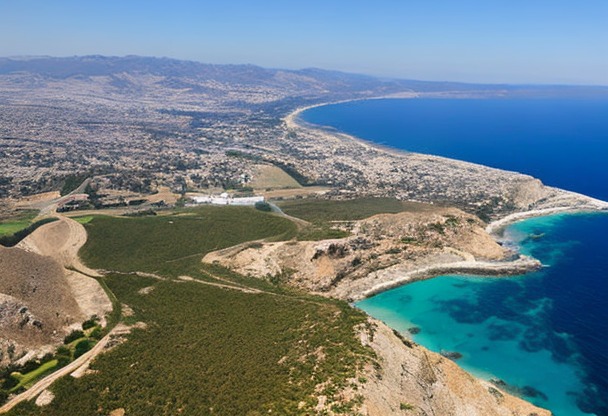WHEN TO TRAVEL TO CYPRUS
Choosing the right period for your trip to Cyprus can make all the difference. It's important to consider climatic elements, seasonal events and busy tourist periods to maximize your travel experience.

Location
Climate
The right months to discover Cyprus' treasures
There's no bad time to visit Cyprus, but some months offer more favorable conditions for discovering the various facets of this destination.The ideal time of year for sun and beach lovers
If you want to spend sunny vacations on the beaches of CyprusThe period from June to September is the best choice. During these months, the weather is hot and dry, with temperatures hovering around 30°C. The days are long and sunny, perfect for lounging on the beach or swimming in the Mediterranean Sea. What's more, the tourist season is in full swing, offering a lively, festive atmosphere.The ideal season for hiking and ecotourism enthusiasts
Travellers wishing to discover Cyprus' natural landscapes, venture out on hiking trails or enjoy outdoor activities will find what they're looking for at the spring (April-May) and autumn (October-November). These periods offer milder temperatures and lush greenery. Rains are rare, so excursions into the Cypriot countryside can be enjoyed to the full.Major cultural events not to be missed
Cyprus is rich in traditions and cultural events throughout the year. Here are some of the must-see events to immerse yourself in the local culture:- Limassol Carnival Taking place in February or March according to the Orthodox calendar, this carnival is the biggest event of its kind in Cyprus. It features 10 days of colorful parades, concerts and dance performances.
- Cyprus International Film Festival Film Festival: held every year in June, it showcases local and international film productions through screenings and special events.
- Limassol Wine Festival Cyprus Wine Festival: this annual event celebrates Cyprus' wine tradition with local wine tastings, entertainment and open-air shows. It takes place every year at the end of August.
- Kypria International Festival Festival de l'art contemporain: this multi-disciplinary festival takes place every year in September and October in several towns on the island. Its varied program includes concerts, theater, dance and contemporary art exhibitions.
Cypriot public holidays
To make sure your stay coincides with the local festivities, it's important to know the main public holidays celebrated on the island:- January 1st New Year's Day
- January 6 Epiphany (Festival of Lights)
- March-April Orthodox Easter (date varies from year to year)
- May 1st Labour Day
- August 15 Dormition of the Virgin Mary (Assumption)
- October 1st Cyprus National Day
- December 25 and 26 Christmas and Saint-Étienne
The low tourist season in Cyprus
November to March is the island's low tourist season. Temperatures are cooler, around 15°C during the day, and rain is more frequent, especially between December and February. However, this period also offers advantages:- Fewer tourists Some attractions and historic sites are less crowded during the low season, making for a more leisurely visit.
- Reduced rates Accommodation and flights to Cyprus are generally cheaper during this period, which can make the trip more affordable.
Insurance

Your credit card does not cover you in all situations, that is whyIt is essential to take out insurance before you leave to avoid any unpleasant surprises. If you need to see a doctor or be hospitalized, in some countries, medical costs are very high and you will then find yourself having to pay several thousand euros.
Our partner Chapka Insurance proposes the contract CAP ASSISTANCE 24/24 with many essential guarantees.


Flights

Your flight has been cancelled or delayed ?
You may be eligible for a compensation of up to €600 ! For this, lawyers are responsible for handling your claim with the airline and are only paid when the reimbursement is effective.
In conclusion, no financial risk for you, only advantages!
Immigration statistics for Cyprus
In terms of immigration, Cyprus has seen a steady rise in the number of migrants settling on its territory over the past few years. According to International Organization for Migration (IOM)By 2020, there will be almost 200,000 migrants in Cyprus, representing around 20% of the country's total population. This increase is mainly due to the large influx of European nationals, notably from the UK, Russia and Greece. Cyprus also welcomes a large number of foreign workers from Asian countries such as the Philippines, Sri Lanka and India.Distribution of nationalities among migrants in Cyprus
- Greeks: about 25%
- British : about 20%
- Russians : about 15%
- Asian : about 10%
- Other nationalities : about 30%
Most popular visas in Cyprus
There are different types of visa for staying and/or working in Cyprus. Here are the three main visas required by foreigners wishing to settle in the country:- Work visa (employment) : allows foreign workers to engage in paid employment in Cyprus. This type of visa is generally valid for one year, renewable.
- Student visa : issued to foreign students wishing to pursue higher education in Cyprus. The period of validity of this visa varies according to the duration of the studies.
- Permanent residence visa : granted to people wishing to settle in Cyprus permanently. To obtain this visa, applicants must prove that they have sufficient financial resources to support themselves and their families.
International tourism in Cyprus: figures and trends
Cyprus is a popular tourist destination, attracting millions of visitors from all over the world every year. The island's paradisiacal beaches, rich culture and history, and Mediterranean cuisine are just some of the attractions that appeal to travelers.Number of international arrivals
According to data published by World Tourism Organization (UNWTO)The number of international arrivals to Cyprus reached a record high in 2019, with over 3.9 million tourists. However, due to the COVID-19 pandemic, this figure dropped drastically in 2020, with only 631,000 arrivals recorded. Despite this exceptional drop, the Cypriot tourism sector remains confident in its ability to bounce back and regain its pre-crisis dynamism.Main nationalities of tourists visiting Cyprus
- United Kingdom: about 30%
- Russia: about 25%
- Israel: about 10%
- Germany: about 5%
- Other nationalities : about 30%
Trends and prospects for tourism in Cyprus
The Cypriot authorities are well aware of the importance of tourism to their economy, and are implementing various measures to enhance the island's appeal. These include the promotion of sustainable tourism, the enhancement of the island's cultural and natural heritage, and the development of new tourism infrastructures.

